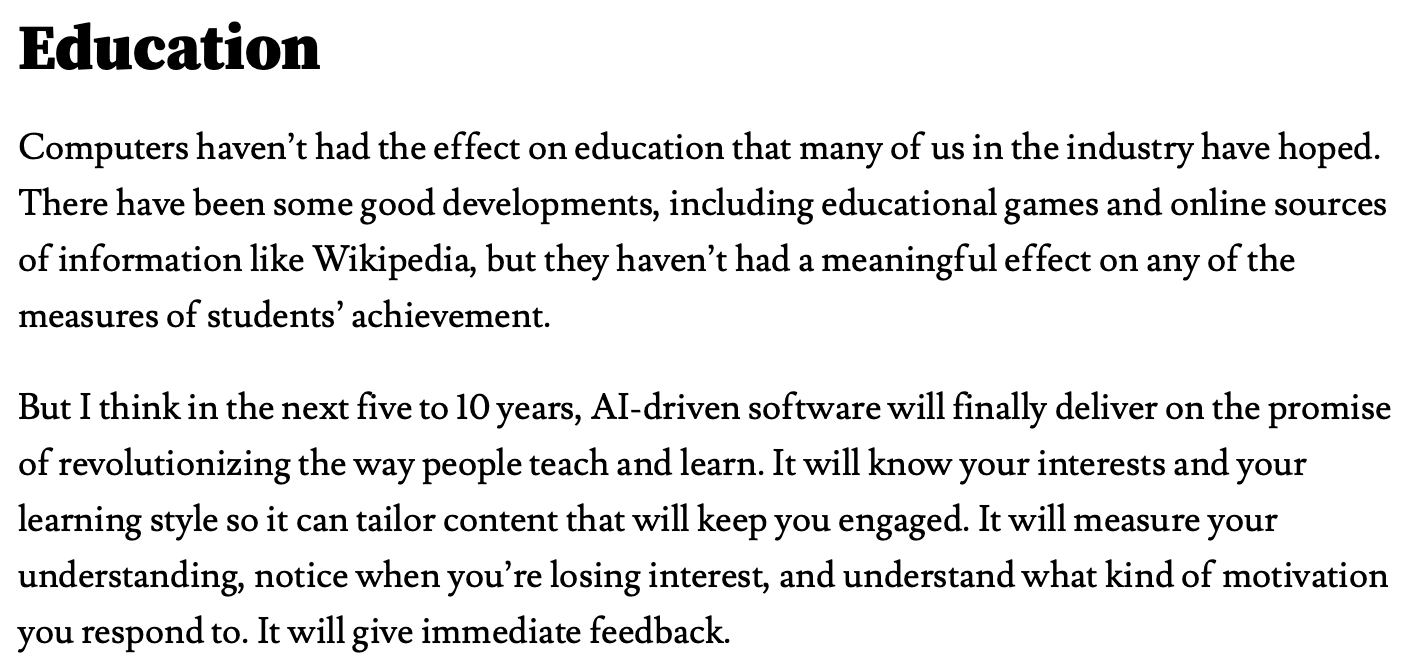Artificial Intelligence in Education: Trash, Tool, or Tidal Wave?
The amount of hype and energy around artificial intelligence (e.g., ChatGPT) in education is reaching Bitcoin^100 levels (I believe Bitcoin hype times itself 100 times is officially called a “Pets.com-plex”). Count me as extremely cautiously optimistic. People, not the AI itself, will ultimately determine whether it ends up being trash, a tool, or a tidal wave for education.
You can’t meander through any “leading edge” website without bumping into at least one, if not many more, stories about how AI is going to change education to match the dreams of people who think they know a lot about education because they were once educated (very akin to something called “the apprenticeship of observation”). Sadly, those stories often include very well-intentioned but off-kilter statements about, among other things, how AI is the thing that will “finally change” education (like education hasn’t been doing great things for society for…I don’t know…as long as it has been around). Bill Gates, who is now a generous philanthropist and has contributed far more to the world than I could ever dream, displays the kind of good-but-not-quite-there take that I’ve seen quite a bit:

This comment displays an understanding of some of the big problems in technology integration into education (e.g., lack of large-scale improvements in outcomes), some of the big remaining opportunities (e.g., automated basic personalization and feedback, particularly for relatively objective, close-ended assessments; diagnostic tools that can work at scale to help teachers identify students in need of support; etc.) and some of the persistent yet clearly wrong ideas about education (e.g., learning styles; that technology can motivate everyone, or provide adequate feedback in all cases). I really wish that people, like Gates, who are so talented, so resourced, and so well-intentioned, would connect with people who have at least an introduction-to-the-science-of-learning level of understanding of education. Otherwise, they continue to make rookie mistakes that hinder the successful integration AI into education. That’s the quickest way to making AI just another contribution to the educational technology trash heap.
Look, I’m not afraid of AI nor am I over-hyped about it. Like any (every) technology, its effect on education will depend upon the people implementing it. If AI is simply shoehorned into classrooms without partnering with actual educators and those that study education, ultimately it will end up like many other education technologies: trash. If AI is integrated thoughtfully, in partnership with educators, and in alignment with what we know about learning, it could be a valuable tool to help teachers be more effective and efficient. And it could be a valuable tool for students, if they are taught how to use it ways that support their own thinking, rather than trying to replace it.
What I doubt is that AI will end up being a tidal wave, sweeping clean teachers, curricula, and schools. People who think that have likely never been an educator or studied the science of learning. There have been many hype-cycles and moral panics about technology, starting with books, going through radio, television, the internet, social media, and now AI. In each case, the hype and the panic each exceeded the impact. The common limiting factor? How well people integrate the technology into what we already know about how people think and learn.
I truly hope the people pushing AI seek out educators and those that study education, to partner on the best way to take advantage of what could be a really powerful tool that both teachers and students will need to know how to use. What we don’t need are a bunch of AIs trying to teach to students’ learning styles, or other missteps that can turn even the most promising technology tool into education trash.